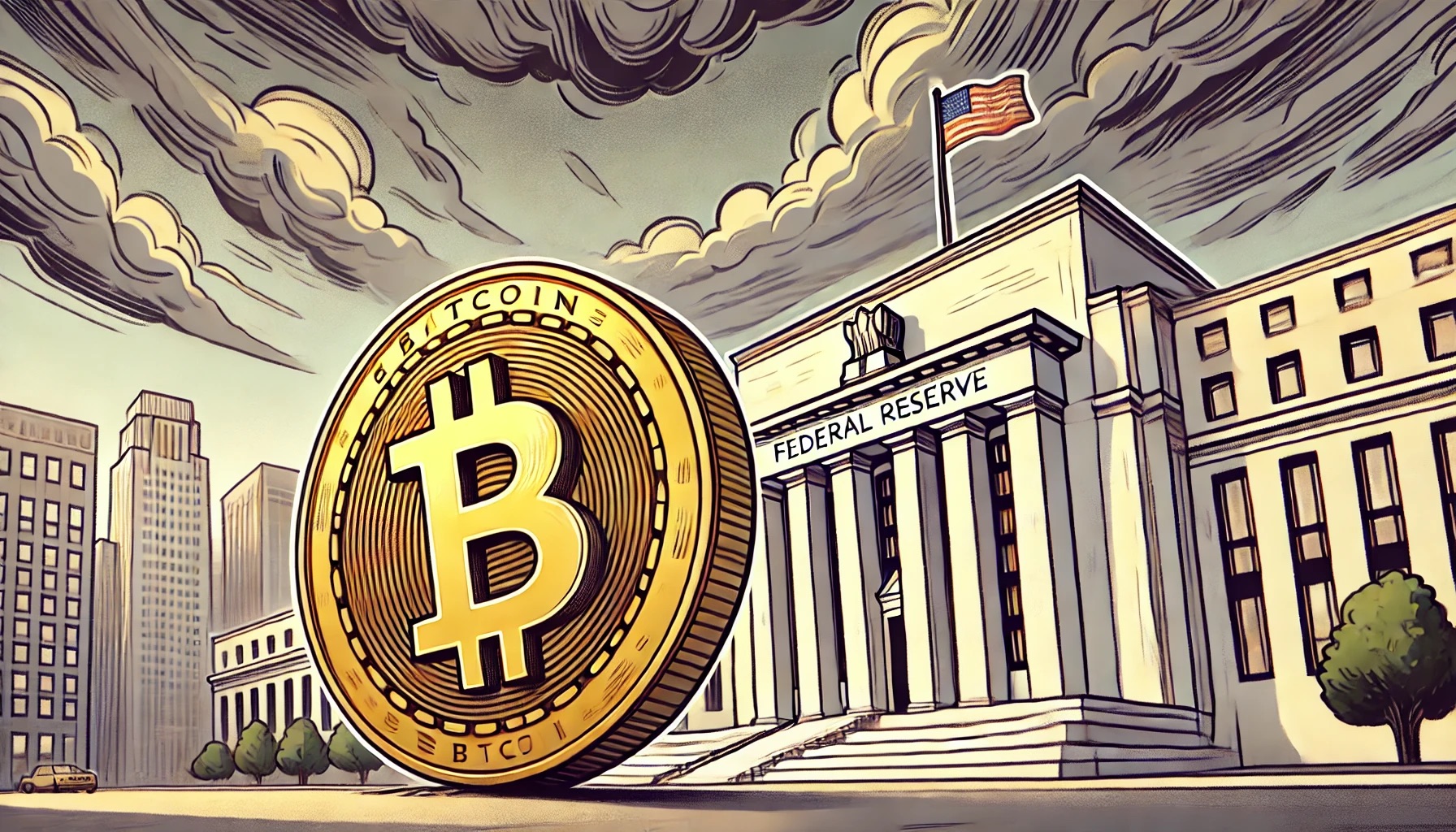Bitcoin dropped nearly 3% on Nov. 14 as Federal Reserve Chair Jerome Powell dismissed the need to lower interest rates quickly. The cautious stance has led traders to reconsider the likelihood of a December cut, with confidence sliding to 59%.
Fed's Stance Sparks Bitcoin's 3% Decline
Following the US Federal Reserve's hints that additional interest rate reduction would not be forthcoming—contrary to what many in the crypto and broader financial markets had anticipated—the Bitcoin market experienced a nearly 3% decline.
According to Federal Reserve Chair Jerome Powell, "the economy is not sending any signals that we need to be in a hurry to lower rates" (November 14 speech, Dallas, Texas).
Recent Rate Cuts Set Context for Powell’s Remarks
The recent rate reduction in September (50 basis points) and November (25 basis points) preceded Powell's remarks. On December 18th, the Federal Reserve will announce its next interest rate decision.
“The strength we are currently seeing in the economy gives us the ability to approach our decisions carefully. Ultimately, the path of the policy rate will depend on how the incoming data and the economic outlook evolve,” Powell continued.
Bitcoin Price Reacts to Powell’s Speech
Data from CoinMarketCap shows that Bitcoin's price fell 2.79 percent to $86,979 after Powell's speech. As we went to press, the price had risen back up to $88,100.
"Odds of a 25 basis points rate cut are down to just 59%," stated trading resource The Kobessi Letter in a post on November 14th, X, indicating that traders' confidence in a December rate cut has diminished.
Further, "the 'Fed pivot' is being undone once again," the Kobessi Letter further stated.
Inflation Data Adds to Rate-Cut Uncertainty
Bitcoiners are watching the Federal Reserve's decision to cut interest rates with bated breath. When rates are low, investors are enticed away from bonds and term deposits, which they view as safer investments, and toward Bitcoin and tech stocks, which are seen as riskier alternatives.
Meanwhile, US inflation statistics slightly surpassed market estimates on November 14th. The same day, US producer prices rose 2.4% year-over-year in October, which was little higher than the 2.3% forecast. As a result of inflation numbers that are in line with forecasts, the Federal Reserve may feel less need to change interest rates soon.
Trump’s Economic Policies Raise Long-Term Rate Concerns
Concerns regarding the possible consequences of several of Trump's declared economic policies have prompted this.
According to economist Nouriel Roubini, who spoke with ABC News on November 14th, Trump's policies on tariffs, trade wars, and immigration could result in "higher interest rates," but his policies on "being pro-business, low tax rates for the corporate sector, deregulation, and more production of fossil fuels" could boost growth and inflation.



 FxWirePro- Major Crypto levels and bias summary
FxWirePro- Major Crypto levels and bias summary  Hyundai Motor Group to Invest $6.26 Billion in AI Data Center, Robotics and Renewable Energy Projects in South Korea
Hyundai Motor Group to Invest $6.26 Billion in AI Data Center, Robotics and Renewable Energy Projects in South Korea  FxWirePro- Major Crypto levels and bias summary
FxWirePro- Major Crypto levels and bias summary  Trump Orders Federal Agencies to Halt Use of Anthropic AI Technology
Trump Orders Federal Agencies to Halt Use of Anthropic AI Technology  Microsoft Gaming Leadership Overhaul: Phil Spencer Retires, Asha Sharma Named New Xbox CEO
Microsoft Gaming Leadership Overhaul: Phil Spencer Retires, Asha Sharma Named New Xbox CEO  ETHUSD Blasts Past $2000 Milestone — Following Bitcoin’s Lead, Bulls Charge Toward $2380–$2500
ETHUSD Blasts Past $2000 Milestone — Following Bitcoin’s Lead, Bulls Charge Toward $2380–$2500  APEX Tech Acquisition Inc. Raises $111.97 Million in NYSE IPO Under Ticker TRADU
APEX Tech Acquisition Inc. Raises $111.97 Million in NYSE IPO Under Ticker TRADU  Trump Media Weighs Truth Social Spin-Off Amid $6B Fusion Energy Pivot
Trump Media Weighs Truth Social Spin-Off Amid $6B Fusion Energy Pivot  Samsung Electronics Stock Poised for $1 Trillion Valuation Amid AI and Memory Boom
Samsung Electronics Stock Poised for $1 Trillion Valuation Amid AI and Memory Boom  Ethereum Whales Just Loaded ~9 Million ETH — The Squeeze Is On
Ethereum Whales Just Loaded ~9 Million ETH — The Squeeze Is On  Nvidia Earnings Beat Expectations as AI Demand Surges, Stock Rises on Strong Revenue Outlook
Nvidia Earnings Beat Expectations as AI Demand Surges, Stock Rises on Strong Revenue Outlook  Greg Abel’s First Berkshire Hathaway Shareholder Letter Signals Continuity, Caution, and Capital Discipline
Greg Abel’s First Berkshire Hathaway Shareholder Letter Signals Continuity, Caution, and Capital Discipline 
































